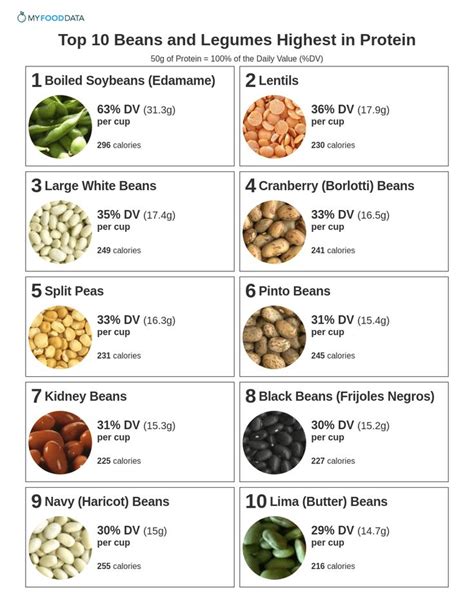Baked beans are a staple in many cuisines around the world, particularly in the United States and the United Kingdom. They are a popular ingredient in various dishes, including breakfasts, barbecues, and snacks. Baked beans are made from haricot beans, which are high in protein, fiber, and other essential nutrients. In this article, we will explore the nutritional content of baked beans in every serving, highlighting their benefits and potential drawbacks.
What are Baked Beans?
Baked beans are a type of legume made from haricot beans, also known as navy beans, which are cooked in a sweet and tangy tomato-based sauce. They are often flavored with spices, sugar, and vinegar, giving them a distinctive taste and texture. Baked beans are a versatile ingredient and can be served as a side dish, added to breakfast dishes, or used as a topping for various meals.
Nutritional Content of Baked Beans
A serving size of baked beans is typically 1/2 cup or 115g. According to the United States Department of Agriculture (USDA), one serving of baked beans contains:
- Calories: 110-120
- Protein: 5-6g
- Fat: 0.5-1g
- Carbohydrates: 20-25g
- Fiber: 5-6g
- Sugar: 5-6g
- Sodium: 200-300mg
Macro-Nutrients in Baked Beans
Baked beans are a good source of protein, fiber, and complex carbohydrates. Here's a breakdown of the macro-nutrients in baked beans:
- Protein: Baked beans contain 5-6g of protein per serving, which is approximately 10% of the daily recommended intake. Protein is essential for building and repairing muscles, organs, and tissues in the body.
- Fiber: Baked beans are rich in dietary fiber, containing 5-6g per serving. Fiber is essential for maintaining healthy digestion, preventing constipation, and supporting healthy blood sugar levels.
- Carbohydrates: Baked beans contain complex carbohydrates, including starches and sugars. One serving of baked beans provides 20-25g of carbohydrates, which is approximately 10% of the daily recommended intake.
Micro-Nutrients in Baked Beans
Baked beans are also a good source of various micro-nutrients, including:
- Folate: Baked beans are rich in folate, a B vitamin that is essential for cell growth and development.
- Manganese: Baked beans contain manganese, a mineral that plays a crucial role in enzyme function, wound healing, and bone health.
- Copper: Baked beans are a good source of copper, a mineral that supports immune function, connective tissue health, and brain function.
- Phosphorus: Baked beans contain phosphorus, a mineral that is essential for bone health, nerve function, and muscle contractions.
Health Benefits of Baked Beans
Baked beans offer several health benefits due to their high nutritional content. Some of the potential health benefits of baked beans include:
- Supports Healthy Digestion: The fiber content in baked beans can help regulate bowel movements, prevent constipation, and support healthy gut bacteria.
- Low in Fat: Baked beans are low in fat, making them a heart-healthy option for those looking to reduce their fat intake.
- Good Source of Protein: The protein content in baked beans can help support muscle growth and repair, making them a popular choice among athletes and bodybuilders.
- Rich in Antioxidants: Baked beans contain antioxidants, including polyphenols and flavonoids, which can help protect against oxidative stress and inflammation.
Potential Drawbacks of Baked Beans
While baked beans are a nutritious food, they also have some potential drawbacks:
- High in Sugar: Some commercial baked beans are high in added sugar, which can be a concern for those monitoring their sugar intake.
- High in Sodium: Baked beans are often high in sodium, which can be a concern for those with high blood pressure or cardiovascular disease.
- May Contain Additives: Some commercial baked beans may contain additives, including preservatives and artificial flavorings, which can be detrimental to health.
Tips for Choosing Healthy Baked Beans
To reap the nutritional benefits of baked beans, choose varieties that are low in added sugar, salt, and preservatives. Here are some tips for choosing healthy baked beans:
- Opt for Low-Sugar Varieties: Choose baked beans that are labeled as "low sugar" or "no added sugar."
- Select Low-Sodium Options: Opt for baked beans that are labeled as "low sodium" or "no added salt."
- Avoid Preservatives: Choose baked beans that are free from preservatives and artificial flavorings.
- Make Your Own Baked Beans: Consider making your own baked beans from scratch using haricot beans, tomato sauce, and spices. This will allow you to control the amount of sugar, salt, and preservatives that go into your baked beans.

Gallery of Baked Beans Nutrition






Frequently Asked Questions
Are baked beans a good source of protein?
+Yes, baked beans are a good source of protein. One serving of baked beans contains approximately 5-6g of protein.
Are baked beans high in fiber?
+Yes, baked beans are high in fiber. One serving of baked beans contains approximately 5-6g of fiber.
Can I make my own baked beans from scratch?
+Yes, you can make your own baked beans from scratch using haricot beans, tomato sauce, and spices. This will allow you to control the amount of sugar, salt, and preservatives that go into your baked beans.
We hope this article has provided you with a comprehensive understanding of the nutritional content of baked beans. Whether you're a fan of baked beans or just looking to incorporate more protein and fiber into your diet, we encourage you to try making your own baked beans from scratch or choosing varieties that are low in added sugar, salt, and preservatives.
